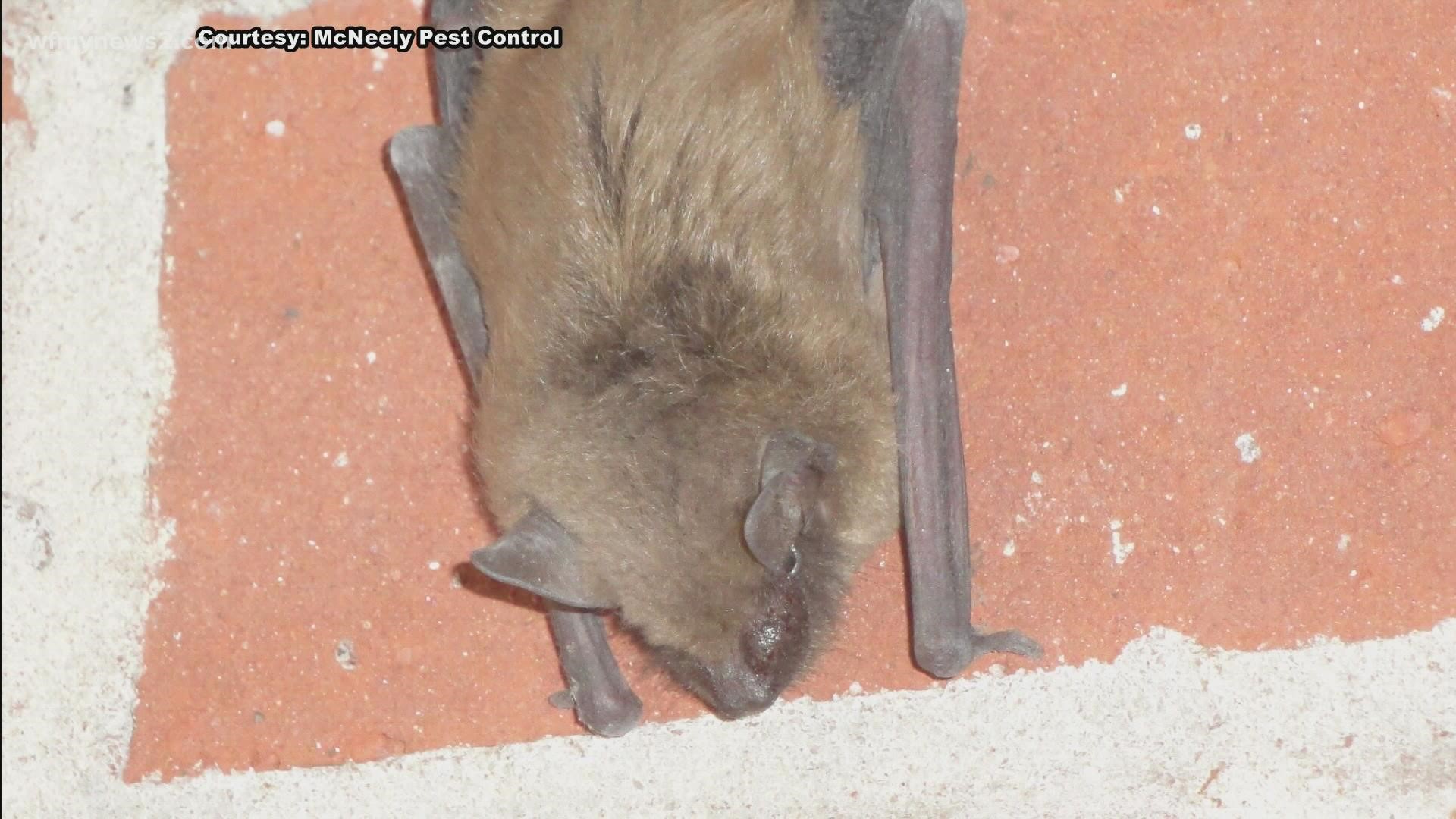GREENSBORO, N.C. — If you suspect bats in your home, now is the ideal time to have them relocated before pup rearing season begins on May 1.
According to N.C. Wildlife Resources Commission, the easiest way to identify bats in your home is through bat scat, called guano.
"They like warmer temperatures, especially during the summertime, and also the way the slats are, especially on gable vents and various trim pieces on the house," said Mark Parsons, a wildlife biologist with McNeely Pest Control in Greensboro. "They can easily leave the structure without any sort of obstruction and they like to hang out in higher locations because they are not like a bird which could fly up off the ground immediately, (they) have to be able to have some sort of elevation duck down and get air underneath the wings so they can fly away that’s why they like higher structures."
Bats hibernate or migrate south during the winter, which is why people start to notice them now. Removal is not allowed under North Carolina law between May 1 and July 31, which is a pup-rearing season. According to N.C. Wildlife Resources Commission, bats are ecologically and economically valuable, eating their own body weight in insects nightly.
“Eviction methods rely on a bat’s ability to fly out of the roost, then measures are taken to prevent reentry. Young bats are initially flightless and are totally dependent on their mothers, so when adult bats are evicted, the young perish because they can’t yet leave the roost or survive on their own," said Katherine Etchison, wildlife diversity biologist with the Wildlife Commission. "To make matters worse, mother bats may end up in the living space of a building trying to seek alternate ways to get to their pups. By August 1, young bats are mature enough to fly, so eviction methods are safe to resume at that point."
Companies like McNeely Pest Control have licensed Wildlife Control Agents and are able to remove the bats responsibly.
"What we generally do is we go out, inspect the property, give certain recommendations," Parsons said. "Maybe we recommend putting screening up over the gable vents, installing one-way doors called bat combs that will allow the bats to leave but can’t get back in, or (we) even install products like ridge guard over the ridge vent."
If you can't remove bats from your home before May 1, wildlife experts say it's best to leave the bats in their roost until the end of July. It is possible to seal off entryways that lead to living spaces to minimize human interactions.
You can also install bat boxes that provide alternate roosting spaces for the animals. More information on bat boxes can be found here.
If you have questions about interactions with bats, contact the Commission’s NC Wildlife Helpline, Monday through Friday, 8 a.m. – 5 p.m., at 866-318-2401 or email HWI@ncwildlife.org.

